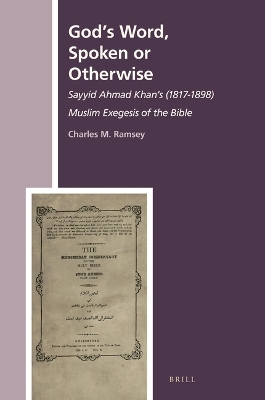History of Christian-Muslim Relations
2 primary works
Book 38
The Gospel According to Sayyid Ahmad Khan (1817-1898)
by Christian W. Troll, Charles M Ramsey, and Mahboob Basharat Mughal
Published 20 January 2020
The Gospel According to Sayyid Ahmad Khan (1817-1898) offers an annotated translation of Tabyin al-kalam (Part 3), a commentary on the Gospel of St. Matthew (Chapters 1-5) by one of South Asia's most innovative public thinkers. Broadly known for his modernist interpretation of Islam, Sayyid Ahmad Khan (1817-1898) appears here as a contemplative mystic who is determined to show the interrelated nature of the Bible and Qur'an, and the affinity of Christian and Muslim scriptural exegesis.
Uncommon in the history of Christian-Muslim relations, Sayyid Ahmad Khan presents what can only be described as a serious reading of the Gospel. The work includes an extensive introduction to the early Church in general, and the development of the Trinitarian doctrine in particular. Never before presented in English, the text sheds important new light upon the spiritual and intellectual journey of this leading modern interpreter.
Uncommon in the history of Christian-Muslim relations, Sayyid Ahmad Khan presents what can only be described as a serious reading of the Gospel. The work includes an extensive introduction to the early Church in general, and the development of the Trinitarian doctrine in particular. Never before presented in English, the text sheds important new light upon the spiritual and intellectual journey of this leading modern interpreter.
Book 45
Set in British India soon after the Uprising of 1857, God’s Word, Spoken and Otherwise explores the controversial and ingenious ideas of one of South Asia’s most influential public thinkers, Sir Sayyid Ahmad Khan (1817-1898). Bringing to light previously unpublished material from his exegetical commentaries on the Bible and Qur’an, this study explores the interplay of natural and prophetic revelation from an intertextual perspective. The book provides fresh insight into Sir Sayyid’s life and work, and underscores both the originality of his ideas, and also their continuity within a dynamic Muslim intellectual tradition.

